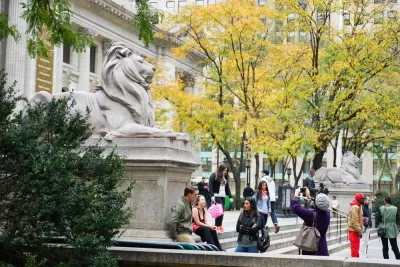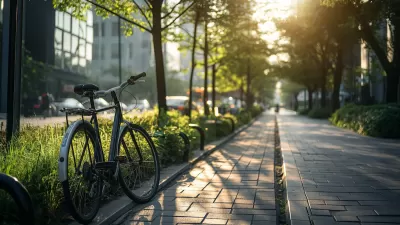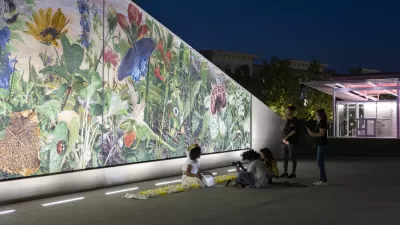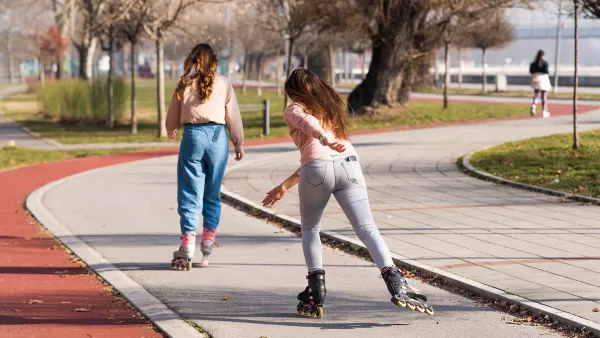More inclusive urban design can help more people access social services and public amenities.

Ishita Gaur describes how urban design can facilitate social services and improve equity in cities. “There are vast inequities in the distribution of healthcare, housing assistance, food accessibility, and educational opportunities, among others. While access to this social infrastructure is to a large extent driven by policy, certain spatial challenges exacerbate the situation—but they don’t have to.”
According to Gaur, “Physical and psychological barriers play a critical role in terms of providing access to vital social services for all. There is a stigma attached to social services, which, often keeps residents from availing of the benefits of such amenities.” Using New York City as an example, Gaur asserts that “The solution lies in creating a network of spaces that New Yorkers can approach for easy and non-judgmental access to the social services they need.”
The city should take this opportunity to not only broaden access to social amenities but also ensure that they are universally inclusive. Designing spaces that are welcoming to people of all income levels, employment statuses, age groups, and gender identities will be key to their success.
Gaur notes that “Inserting social services and amenities inside already welcoming and non-discriminatory spaces can dramatically reduce the perceived barriers that a person might need to overcome in seeking help. New services located at the exterior of these amenities can create a buffer space that receives people while also providing some privacy and anonymity to the individual seeking assistance.” For many people, “Even simple design decisions, such as the presence of a front desk or its location, can dramatically change the experience for an individual.”
As Gaur concludes, creating more inclusive and welcoming public spaces improves the health of cities as a whole. “Creating a healthier city for those most in need leads to a healthier city for all.”
FULL STORY: Op-ed: Social amenities can make space for social equity

Planetizen Federal Action Tracker
A weekly monitor of how Trump’s orders and actions are impacting planners and planning in America.

Maui's Vacation Rental Debate Turns Ugly
Verbal attacks, misinformation campaigns and fistfights plague a high-stakes debate to convert thousands of vacation rentals into long-term housing.

San Francisco Suspends Traffic Calming Amidst Record Deaths
Citing “a challenging fiscal landscape,” the city will cease the program on the heels of 42 traffic deaths, including 24 pedestrians.

Amtrak Rolls Out New Orleans to Alabama “Mardi Gras” Train
The new service will operate morning and evening departures between Mobile and New Orleans.

The Subversive Car-Free Guide to Trump's Great American Road Trip
Car-free ways to access Chicagoland’s best tourist attractions.

San Antonio and Austin are Fusing Into one Massive Megaregion
The region spanning the two central Texas cities is growing fast, posing challenges for local infrastructure and water supplies.
Urban Design for Planners 1: Software Tools
This six-course series explores essential urban design concepts using open source software and equips planners with the tools they need to participate fully in the urban design process.
Planning for Universal Design
Learn the tools for implementing Universal Design in planning regulations.
Heyer Gruel & Associates PA
JM Goldson LLC
Custer County Colorado
City of Camden Redevelopment Agency
City of Astoria
Transportation Research & Education Center (TREC) at Portland State University
Jefferson Parish Government
Camden Redevelopment Agency
City of Claremont





























